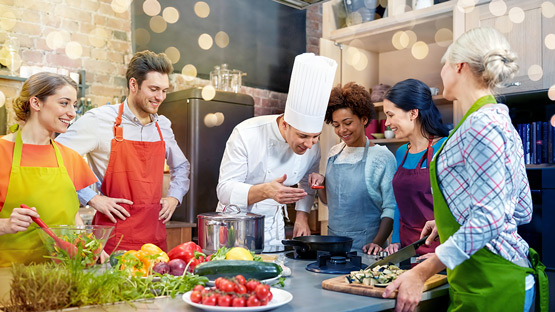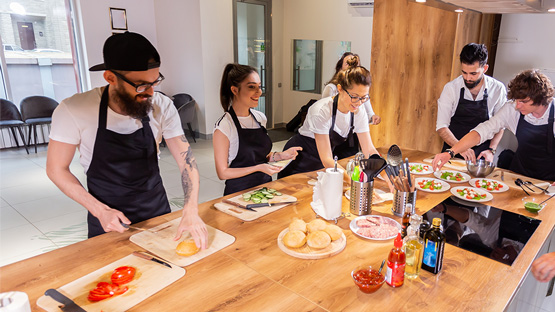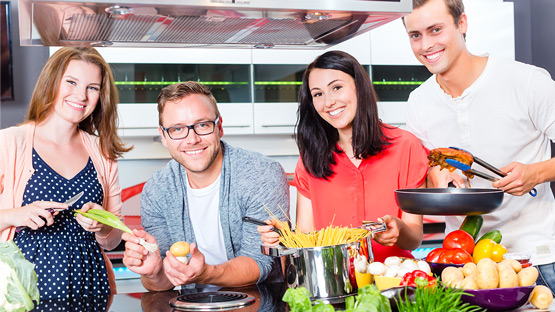Can you imagine the Delicacy
Cooking, eating, and learning?
- World on a Plate Every dish is a cultural story. In the Cooking Laboratory, students share Colombian recipes like ajiaco or arepas while also discovering foods from other countries. Explaining a recipe in English is more than a language exercise — it’s sharing identity, heritage, and tradition. Food connects people, and through these lessons students see how flavors from Asia, Europe, and the Americas reveal what humanity has in common. At the table, cultural barriers disappear: English becomes the bridge where everyone belongs. Students don’t just practice grammar; they practice respect, diversity, and appreciation. The classroom kitchen becomes a global table, where English, food, and culture blend into one universal language.
- Speaking With Flavor Cooking in English builds real-world confidence. In the Cooking Laboratory, students practice giving instructions, asking for ingredients, and presenting dishes in English. Each activity is practical, creative, and recorded for feedback. The moment a student explains a recipe clearly, they are also preparing for a job interview, a business presentation, or a trip abroad. Cooking is a safe rehearsal for speaking in front of others, because it demands clarity and connection. Students leave not only with new recipes, but with the ability to speak confidently in English. The kitchen becomes their stage, and language their masterpiece. The result: confidence that lasts long after the last dish is served.
- Words You Can Taste The kitchen is the perfect place to expand your vocabulary. In our Cooking Laboratory, English words are not memorized — they are lived. Students learn utensils, tools, and cooking actions while actually using them: knife, fork, pan, pot, slice, boil, stir, mix. Each term comes alive because it’s tied to the senses: you don’t just learn the word spoon, you hold it, use it, and describe it. The kitchen becomes a real dictionary, where every action has a name and every recipe a story. Students gain fluency in the vocabulary of daily life, one that can be used anywhere in the world. Cooking becomes more than preparing food — it becomes preparing your English to serve you in travel, work, and culture.



